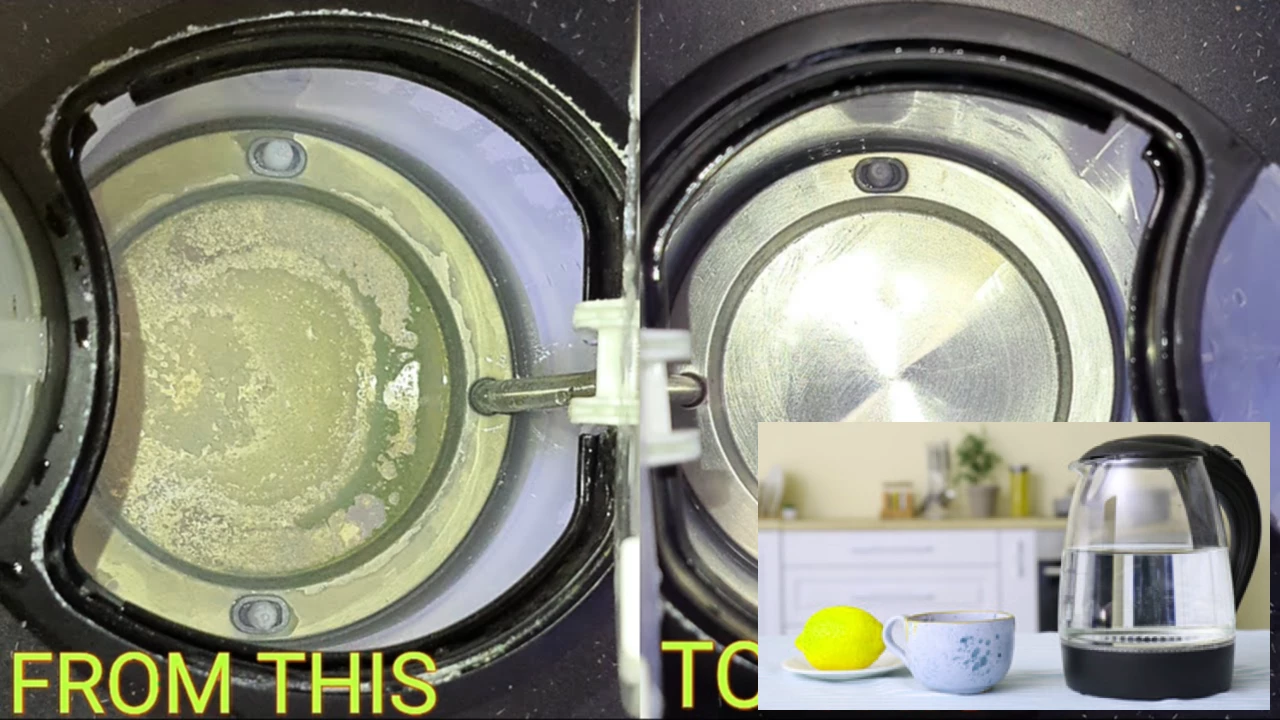Did you know that up to 80% of kettles show signs of limescale after just one year? This mineral build-up not only affects the taste of your water but can also damage your appliance. Luckily, there are simple, natural ways to keep your kettle sparkling and functioning optimally.
Many people dread the task of descaling, picturing hours of scrubbing. But what if I told you there's a far easier and more environmentally friendly approach? This article will explore various natural methods to effectively remove limescale from your kettle, saving you time, effort, and money.
Natural Descaling Methods: A Comparison
So, how *do* you effectively clean your kettle without resorting to harsh chemicals? Let's examine some popular, natural options. The best method often depends on the severity of the limescale and your personal preference.
- Lemon Juice: A classic and highly effective method. The citric acid in lemon juice dissolves limescale easily.
- White Vinegar: Another powerful acid that readily breaks down mineral deposits. Just remember to rinse thoroughly afterwards!
- Baking Soda: While less effective on its own, baking soda can be used in combination with vinegar for a powerful cleaning action.
Descaling Your Kettle with Lemon: A Step-by-Step Guide
The lemon method is a favourite for its simplicity and effectiveness. It's a perfect example of how a common household item can tackle a significant cleaning challenge. Here's a detailed guide:
| Step | Action |
|---|---|
| 1 | Fill the kettle halfway with water. |
| 2 | Squeeze the juice of one or two lemons into the water. (The amount depends on the kettle size and limescale build-up.) |
| 3 | Bring the water to a boil. |
| 4 | Let the mixture sit for at least 30 minutes, or even overnight for stubborn limescale. |
| 5 | Empty and rinse the kettle thoroughly. |
Preventing Limescale Buildup
Prevention is always better than cure. Regular cleaning and adopting these simple habits can minimize limescale formation in your kettle:
- Use filtered water
- Descale your kettle regularly (every few weeks or months, depending on water hardness)
- Wipe the kettle dry after each use to prevent mineral residue from accumulating
Comparing Lemon, Vinegar, and Baking Soda
While lemon juice provides a refreshing scent and readily breaks down limescale, white vinegar offers a more potent acidic cleaning power. However, the pungent vinegar smell may linger. Baking soda, used in conjunction with vinegar, aids in the removal process. The choice is yours; the best method depends on personal preferences and the level of limescale.
Frequently Asked Questions (FAQ)
Q1: How often should I descale my kettle? A: This depends on the hardness of your water. Hard water areas require more frequent descaling (e.g., every 2-4 weeks), while softer water areas may only need it every few months.
Q2: Can I use other fruits besides lemons? A: Yes, other citrus fruits like oranges or grapefruits contain similar acids that can help remove limescale, though lemons are generally the most effective.
Q3: What if the limescale is really stubborn? A: For persistent limescale, extend the soaking time or try a combination of lemon juice and baking soda.
Q4: Is it safe to descale with vinegar? A: Yes, but ensure you rinse thoroughly to remove all traces of vinegar before using the kettle again.
Q5: Can I use a dishwasher to clean my kettle? A: Generally, no. Most kettles are not dishwasher-safe, and the high heat and detergents can damage the appliance.
"Keeping your kettle clean not only ensures a better taste but also prolongs its lifespan. Regular descaling is a simple yet vital part of kitchen maintenance."

